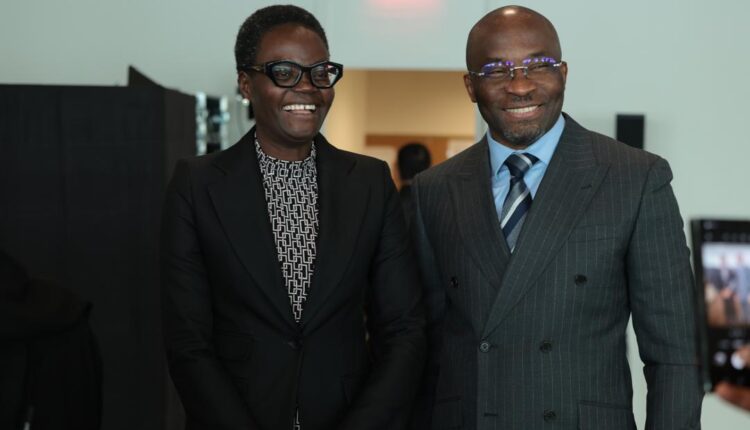Nigeria has advocated for a review of the current funding structure of the United Nations (UN), citing the need for a more balanced and truly multilateral system.
The call for reform came on the heels of an argument by the Deputy Speaker of the Nigerian House of Representatives, Hon. Benjamin Okezie Kalu who is leading the country’s delegation at an ongoing high profile meeting of the Inter-Parliamentary Union (IPU) in New York, United States (US) that an all-inclusive funding mechanism for UN is needed.
Submitting Nigeria’s contributions to IPU’s draft resolution of the preparatory committee for the upcoming 6th world Conference of the Speakers of Parliaments in Geneva, Switzerland, Kalu said that the prevailing dependency on a few major donor countries allows them to dictate priorities, undermining the principles of multilateralism.
Specifically, he said that the proposed reform aims to reduce the undue influence of major donors and promote more equitable decision-making, stressing that this, in turn, would facilitate greater cooperation and collective action in achieving the UN’s Sustainable Development Goals (SDGs).
The Head of Nigerian delegation also urged other UN member States to support the proposed reform, arguing that it is essential for creating a more effective and responsive global governance system.
Kalu said: “Nigeria calls for a review of the current funding structure of the United Nations. The prevailing dependency on a few major donor countries allows these nations to dictate priorities—embodied in the adage “he who pays the piper dictates the tune.” To ensure a balanced and truly multilateral system, the funding participation scope should be expanded to include a broader range of nations, thereby reducing undue influence and fostering equitable decision-making.”
Similarly, the Deputy Speaker of Nigeria’s House of Representatives also proposed the inclusion of “prosperity” to the current theme of the Conference which is “A World in Turmoil: Parliamentary Cooperation and Multilateralism for Peace and Justice for All” to now read “A World in Turmoil: Parliamentary Cooperation and Multilateralism for Peace, Justice and Prosperity”.
Advancing the rationale behind the proposal, the Deputy Speaker said that the inclusion of “prosperity” underscores the essential role that economic and social well-being play in creating an environment conducive to lasting peace and justice.
“In an era marked by unprecedented global challenges and uncertainty, the quest for peace, justice, and prosperity is not merely aspirational—it is imperative. Nigeria firmly believes that prosperity is the essential foundation upon which sustainable peace and justice are built. Without a robust and inclusive economic environment, the ideals of peace and justice remain out of reach. Ensuring that the indispensable element of prosperity is fully integrated into our collective pursuit of a just and stable global order is, therefore, paramount.

“In light of this understanding, Nigeria submits the following recommendations to amend the draft resolution: Amendment of the Theme. Current Theme: “A World in Turmoil: Parliamentary Cooperation and Multilateralism for Peace and Justice for All”. Amendment: “-proProProposeA World in Turmoil: Parliamentary Cooperation and Multilateralism for Peace, Justice and Prosperity.
“The inclusion of “prosperity” underscores the essential role that economic and social well-being play in creating an environment conducive to lasting peace and justice”, Kalu said.
The Deputy Speaker also proposed the amendment of Article 108 of the UN Charter Provisions to help secure permanent seats for the continent of Africa.
“Nigeria notes that while the UN Charter and its provisions are foundational for ensuring peace, Article 108 presents significant obstacles, especially in securing permanent representation on the UN Security Council for countries from the Global South.
“Current statement is that all countries and global institutions must abide consistently by the International Rule of Law, beginning with the Charter of the United Nations, avoiding double standards that more than anything else undermine the legitimacy of the multilateral system.
“The recommended amendment is to revise the text to: All countries and global institutions must abide consistently by the International Rule of Law, beginning with the Charter of the United Nations, and actively work to amend any provisions that conflict with the principles of multilateralism.
“While Nigeria accepts the Charter in its entirety, a dialogue is needed to reform provisions that hinder the full realization of multilateralism. Amending Article 108 is essential to enabling a more inclusive and representative global governance
framework.
As the amendments are being adopted by IPU, the Deputy Speaker also highlighted their imports to the global peace.
“Nigeria’s recommendations are intended to reinforce the core principles of multilateralism by integrating the indispensable elements of peace, justice, and prosperity throughout the draft resolution. By addressing funding imbalances, refining terminology, and advocating for necessary Charter amendments, Nigeria seeks to promote a more balanced, inclusive, and effective international order’, Kalu said.

